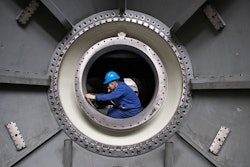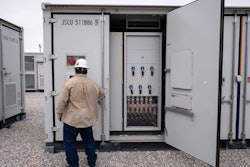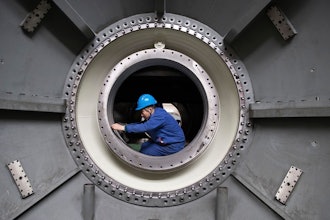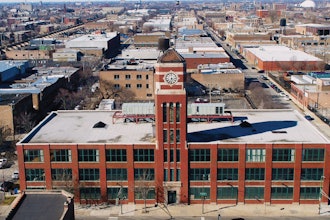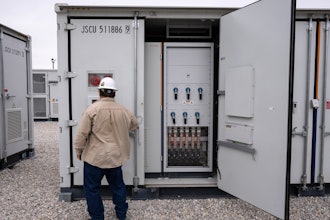
The early months of 2023 have been gripped by sudden layoffs as tech giants, more than other industries, find themselves with apparent "unforeseen gaps" in their budgets.
While the effects of layoffs are seemingly obvious, what do mass layoffs mean for the rest of the population? It's no surprise that these events cause many people to wonder if the worst is yet to come due to the poor planning of large companies, and the answer to these worries is a little bit more complicated.
Layoffs, pink slips, thinning payroll…whatever you want to call it, mass firings of employees are a financial nightmare for hardworking individuals and companies alike. These quick bursts of layoffs cause a ripple effect, and it's hard to see how much damage they will do and where the harm will occur.
Why Are People Getting Laid Off?
As a society, people have grown accustomed to layoffs and have been trained to associate them with times of general financial hardship. This is perhaps why people see pink slips at one company and begin to fear for their own job security. However, on the whole, layoffs can happen for various reasons that have nothing to do with the rest of us.
Budget pitfalls, poor financial planning, and sudden pullouts of investors are reasons businesses may need to slash salaries for a quick financial rescue. According to Stanford scholar Professor Jeffery Pfeffer, copycat behavior, or "social contagion," is the root of the mass firings, like those that occurred in the tech industry in late 2022 and early 2023.
There seems to be no apparent evidence to support layoffs in this lucrative industry, and there is plenty of money in the coffers of these firms to retain their staff. However, these companies continue to piggyback on each other, with Microsoft, Google, Meta ( Facebook ), IBM, Salesforce, and Amazon making sweeping cuts, according to UNSW Newsroom.
Will Tech Workers Find New Jobs?
With so many skilled professionals receiving the chop in the past few months, it's hard to help but wonder where they all will land. However, despite these swaths of layoffs, the tech industry still has a stable hiring landscape. According to Dice, hiring postings for December 2022 were consistent with the past four years of hiring statistics despite large layoffs.
The best of the best from the industry will quickly find new homes at other similar companies. Despite the big layoffs, top tech companies are still hiring, as their concerns are not budgetary, and our world continues to become increasingly digital. Other industries also need tech professionals. Professionals who may stop trusting large tech companies altogether for fear of being uprooted still have other options for work.
Those with tech skills could consider seeking tech positions for non-tech companies, such as local and state government work. Financial institutions, health care, engineering, and manufacturing also need skilled IT staff for the development of IT infrastructure and the security of their data.
How Did The Economy Become Like This?
It's difficult to say. For business scholars like Professor Jeffery Pfeffer, it's hard to watch mass layoffs occur due to the widespread evidence against layoffs and their effectiveness. He cites that layoffs signal economic difficulty, have no positive effect on productivity, and have disastrous impacts on employees' mental health.
When asked about the mass layoffs in early 2023, Professor Pfeffer said, "We ought to place a higher priority on human life." But unfortunately, the strategy of copying other layoffs continues and can be dubbed "contagious layoffs."
The problem gets worse, too. Analytics on human behavior show that the contagious nature of layoffs has more impact on employee exodus than just firings from the higher-ups. The Viser Turnover Contagion Report states that any company's employees are 7.7% more likely to leave the company after terminations or layoffs occur on their team at work. So, the result of copycat layoffs is a continued departure from companies that employ this strategy.
What Are The Effects on Everyone Else?
Due to the copycat nature of the big layoffs that have been making global headlines and the widespread availability of tech jobs, there isn't a signal of an incoming recession. While these layoffs seem massive and catch headlines with tens of thousands of employees suddenly axed, the impact of the tech layoffs is not as scary as it seems.
The national unemployment rate is steady, and unemployment claims were lower in January 2023 than in December 2022, according to the Department of Labor. These statistics show that the mass firings haven't impacted the rest of the country in a show of true financial instability. Experts approximate that tech layoff victims have quickly found other jobs.
Stay Calm and Ignore Silly Business Strategies
It might be easier said than done, but ignoring the big layoffs of early 2023 is the best course of action for the labor market. The tech industry is booming despite large layoffs, and while waves were made in the press, they weren't in the wallets of the average American.
As employees that were wronged by their employers seek new employment, the lesson learned from this event is that large corporations should stop using copycat layoff tactics. Otherwise, they lose skilled employees to other companies and potentially scare off potential new employees.
This article was produced by The Money Dreamer and syndicated by Wealth of Geeks.





